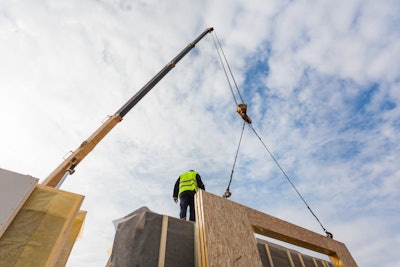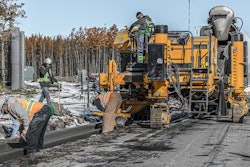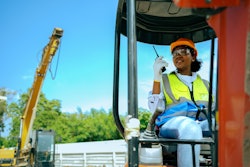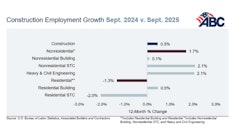
The increase in multifamily development in recent years is projected to deliver over half-a-million new units nationally in 2024. And with the oldest members of Generation Z turning 27 this year, younger generations will make up a substantial portion of the renter population that will inhabit these spaces. As a result, multifamily developers must reevaluate the unique needs of this soon-to-be-dominant renting demographic – and anticipate what they will demand from current and future housing options as a generation shaped by the pandemic, climate change, and increased affordability issues.
For one, Gen Z renters are particularly concerned with global warming, viewing climate change not just as a far-off concern but a pressing reality that will impact all aspects of their daily lives. In fact, recent research by Deloitte indicates that 69% of Gen Z individuals are actively working to reduce their environmental impact. This commitment to sustainability is shaping their housing preferences in profound ways, calling on developers to tap into the need for climate-friendly, net-zero housing solutions.
Studies also show that Gen Z is renting for longer periods of time than previous generations, driven by affordability issues that were exacerbated by the pandemic and have since culminated in a housing market characterized by high interest rates and skyrocketing home prices. And even with recent rate cuts, many young people continue to find themselves navigating a challenging rental landscape that does not often align with their core values. For multifamily developers, this should create an urgent imperative to address the demand for attainable and sustainable living options.
Meeting Gen Z’s Housing Preferences
As we delve deeper into the preferences of Gen Z, we see that their desire for sustainable living is intertwined with their expectations for quality and affordability. They are not willing to compromise on these values; they seek homes that reflect their commitment to a better planet while also fitting within their financial realities.
Developers who recognize this intersection of values can tailor their offerings to meet these demands effectively. This means investing in energy-efficient construction systems, sustainable building materials, and development partners that can connect developers with the resources they need to bring sustainable visions to life.
Moreover, as multifamily developments rise in number, the competition for Gen Z renters intensifies. This demographic is looking for more than just a place to live; they want a lifestyle that aligns with their values. Developers must be attentive to this shift, creating communities that foster sustainability, connectivity, and inclusivity.
The Modular Approach
An effective strategies for developers to meet the sustainable living demands of Gen Z is through modular construction. Not only does this approach utilize energy-efficient materials capable of producing net-zero homes, but it also allows developers to relocate the construction process to a controlled environment where building process emissions can be reduced by up to 30%. Compared to traditional methods, this means that modular construction is capable of meeting Gen Z’s climate-conscious demands at every step of the housing development process – from assembly to closing. With 70% of Gen Z saying they’d pay more for a home with sustainable features, and 73% willing to pay a 10% premium for sustainable practices, a modular approach ensures that developers are meeting Gen Z renters on the sustainability needs they care about most.
The scalability of modular construction also offers developers the ability to accommodate today's larger renter population – which is one reason why the multifamily sector is the largest market for modular construction solutions. This is incredibly important as we anticipate the delivery of 670,000 new multifamily units this year, which will drastically increase supply and encourage young renters to become more selective with their housing decisions. Modular construction allows developers to prioritize meeting this generation’s sustainable housing demands as renters become more discerning – all without compromising the project scale they must maintain to remain competitive.
Benefits of Modular for Multifamily Development
But the benefits of modular construction for multifamily developers extend far beyond environmental sustainability. For one, modular construction can significantly enhance the efficiency of the building process. By constructing units in a controlled factory environment, projects are less susceptible to weather-related delays that often plague traditional construction timelines. This not only accelerates project completion but also allows developers to tap into labor pools that traditional construction methods might overlook, further enhancing efficiency.
Moreover, the cost savings associated with modular construction are substantial. The factory-built approach reduces overall building costs and provides a consistent quality of work that can be challenging to achieve on-site. This means developers can allocate their resources more effectively, ultimately allowing for more multifamily units to be constructed in a shorter timeframe.
Additionally, utilizing climate-friendly materials opens the door to green financing options. These financing mechanisms are often reserved for environmentally friendly projects, and they can significantly alleviate financial constraints in today’s challenging economy. Green financing not only helps developers revive stalled or over-budgeted projects but also increases profit margins. By aligning with the values of Gen Z, developers can ensure that their projects are not just viable but also financially advantageous.
A Unique Opportunity for Developers
The convergence of Gen Z’s environmental concerns and evolving housing trends presents a unique opportunity for developers willing to adapt and innovate. Modular construction stands out as a solution that not only meets the sustainability demands of this influential demographic but also provides tangible financial benefits for developers, operators and tenants alike.
By embracing modular construction, developers can make meaningful strides toward a more sustainable future while simultaneously reaping the rewards of a burgeoning market. As we move forward, it is crucial for developers to recognize the importance of catering to Gen Z’s values and preferences. The benefits of modular construction are two-fold: they pave the way for environmentally responsible development while allowing developers to thrive in a competitive market.
In an era defined by change and challenge, we have an opportunity to shape the future of housing for generations to come. By focusing on sustainable practices and understanding the needs of younger renters, we can create homes that not only fulfill basic living requirements but also resonate with the values of a generation committed to making a difference. Let’s embrace this moment and lead the charge toward a more sustainable, equitable, and prosperous future in construction and development.



















